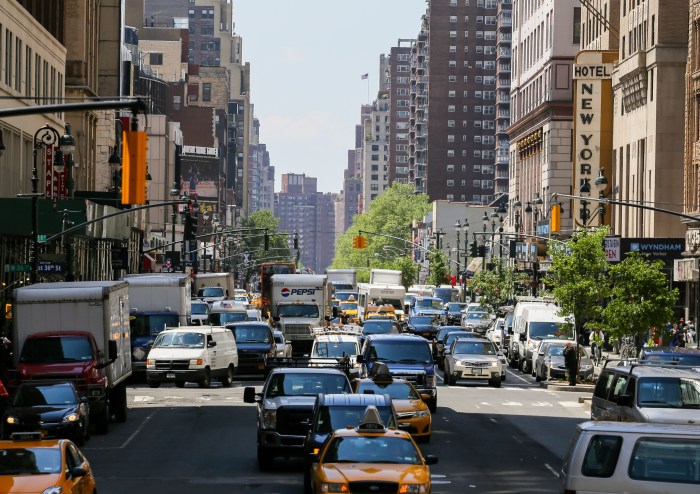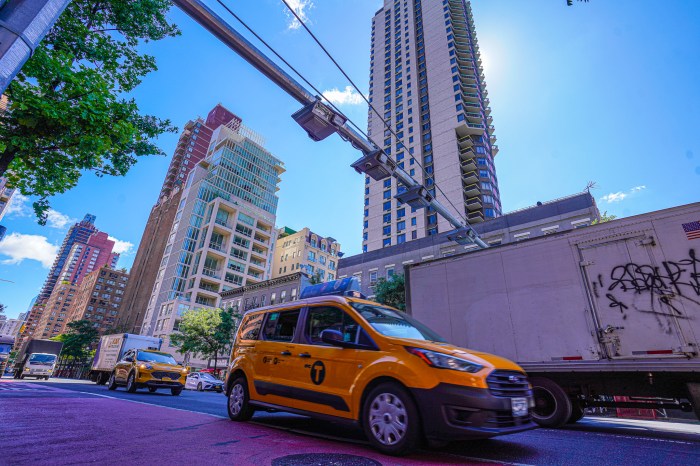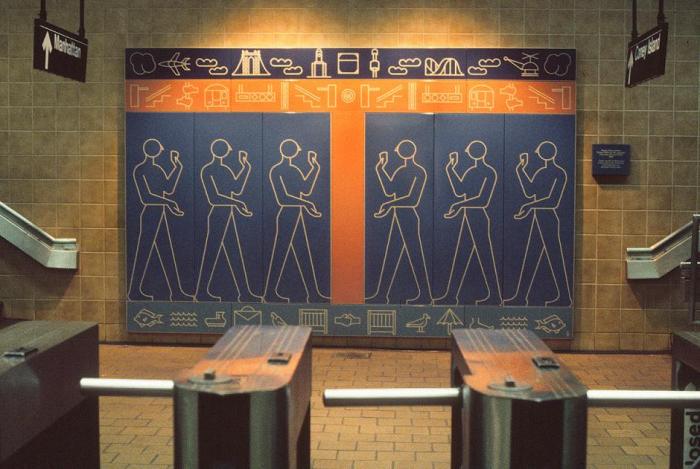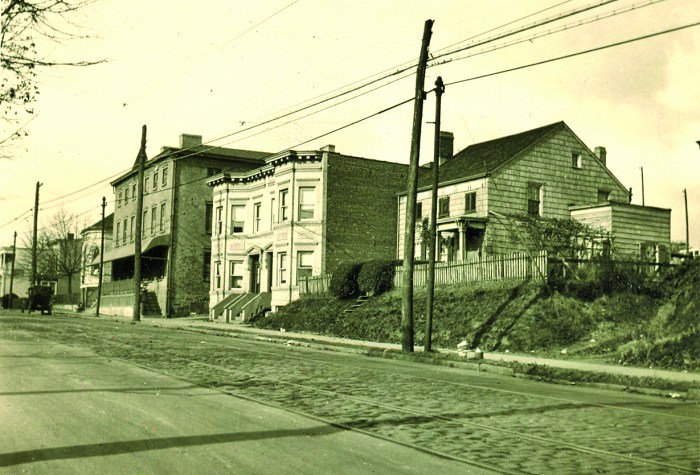
After a garbage fire crippled Monday’s commute, the MTA is mulling a ban on food in the subways.
MTA chairman Joe Lhota on Tuesday said the agency will ramp up track cleaning and has begun a “debate” about “what foods are appropriate” to eat on the subway and how to educate riders on such faux pas, without ruling out eliminating dining in the system altogether.
“Wait for the 30-day report,” said Lhota at a Penn Station news conference Tuesday, referring to the 30-day organizational review he is conducting for the agency and the findings that will result from it.
“Just recently I was on a train … the number 2 train and someone got on with a Styrofoam thing of Chinese food it looked like,” Lhota continued. “There was a lot of rice and other things. Inevitably the rice fell. It was all over the place. I want to avoid things like that.”
A track fire sparked by trash near Harlem’s 145th Street station crippled subway service along the A, B, C and D lines for more than two hours during the peak of Monday’s morning rush hour. Nine people were sent to area hospitals for treatment of minor injuries.
Subway fires caused 844 train delays in April, just more than 1.1 percent of the total, according to the MTA’s most recent data available. Lhota said Monday morning’s fire was particularly debilitating because of the amount of smoke it generated.
“We wanted to get all of the smoke out of the system,” Lhota said. “We don’t want to run passengers through a smoky situation. It takes a while to get the exhaust, to get the smoke out of the system. That’s what burdened, you know, the 90 minutes to two-hour time frame.”
It is unclear what specific foods or drinks could be prohibited. Lhota favors less messy, “package-related” snacks like protein bars over Chinese takeout, he said. The MTA’s “Courtesy Counts” public awareness campaign already advises against eating on the subway and offers guidance on how to properly dispose of trash.
“We need to think about this in terms of what works,” Lhota said, adding that the agency instead might try an “educational program” on appropriate foods to eat on the subway — similar to the tactic taken by the Southeastern Pennsylvania Transportation Authority, which encourages the consumption of “light snacks” but not “cooked and prepared foods.”
Others have taken things further. Both the Port Authority’s PATH system and Washington, D.C.’s Washington Metropolitan Transportation Authority have strict bans on food and drink on trains and station platforms.
“This is a discussion that started last evening around 8 p.m.,” Lhota told reporters on Tuesday morning. “So we’re evaluating what other transit systems do, other railroads do. Your questions are all appropriate, just premature.”
Lhota’s openness toward a food ban conflicts with his comments on the subject in the past. When he first served as chairman in 2012, Lhota told The New York Times enacting such a rule “severely hurts and impacts minority communities.”
“I don’t want to deny the kid the only time that day he’s going to get food,” Lhota said at the time, referring to the children he had seen eating breakfast on the subway.
When Caileigh Halbrook heard that the MTA was considering a ban on food, she exclaimed, “What?”
The 20-year-old Ridgewood resident said she didn’t think it was fair to punish people whose only time to eat in the morning is on their commute.
“Some people don’t have time to go somewhere and eat,” Halbrook said. “I know sometimes it’s smelly, but it’s public transit, and you kind of have to deal with it. This is what you’re paying for.”
Andrew Albert, an MTA board member, said he saw value in banning foods in the name of station cleanliness, but, like Lhota, he’d like to strike a balance.
“We don’t want track fires; we don’t want refuse on the platforms; and we don’t want food left on the subway cars, which then draws rodents,” Albert said. “There are some foods that are offensive to our fellow riders, but foods like candy or granola bars I don’t think are a problem.”
Lhota blamed littering as the primary cause of track fires, but he cautioned that he “won’t buy into the concept of who is and who isn’t a litterbug.” He said the agency has made a “tremendous investment” in cleaning tracks over recent decades. There were 698 track fires since July of last year, compared with about 5,800 in 1981, according to the MTA.
The transit agency primarily relies on hulking vacuum trains, refuse cars and staff to keep tracks clean. Following a pilot in January, the agency has ordered 12 new portable vacuums that give workers a more nimble option to clean track debris, according to Lhota. The chairman also said the agency would “enhance” what’s known as Operation Track Sweep, a cleaning initiative that last year instituted new crew schedules to re-prioritize cleanups as well as a two-week, systemwide cleaning blitz that involved 500 workers.
“The goal is no fires, plain and simple,” said Lhota, who added that the entire subway system was swept clean less than two months ago. “We need to [clean out the system] more frequently.”
With Alex Bazeley

































